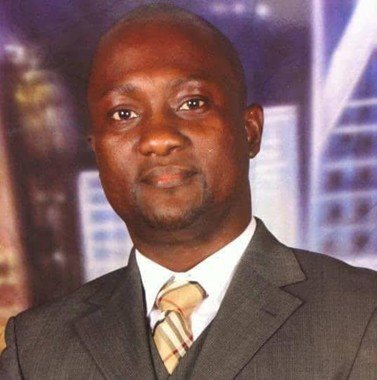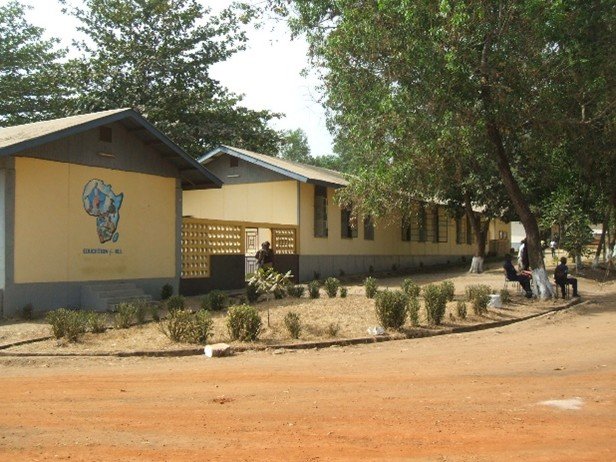By Zacharia Dainkeh Esq., Member, All Peoples Congress
I write with reference to the opinion piece by Mr. Philip Conteh, published on the 31st August 2025, which seeks to justify the provision in Article 56(b) of our Party’s 2022 Constitution. While I respect Mr. Conteh’s service to the APC, his analysis is predicated on a fundamental misapprehension of constitutional law that, if left uncorrected, poses a grave and unnecessary risk to our party’s stability and electoral prospects. My concerns on this matter are a matter of record, having been formally communicated to the National Secretary General on 18th February 2022 immediately after the publication of the proposed draft. Mr. Philip Conteh’s arguments, though well-intentioned, but failed to address the core legal deficiency I identified then, which remains unaddressed now.

Mr. Philip Conteh’s assertion that the national Constitution and party rules operate in “different spheres” is a legally precarious notion. Section 171(15) of the Constitution of Sierra Leone Act No. 6 of 1991 is unequivocal: “This Constitution shall be the supreme law of Sierra Leone and any other law found to be inconsistent with any provision of this Constitution shall, to the extent of the inconsistency, be void and of no effect.” The term “any other law” has been consistently interpreted by our judiciary to include the rules and constitutions of bodies like political parties, particularly when they regulate eligibility for public office. The Party Constitution is a subordinate instrument; it cannot create a parallel legal framework that restricts rights explicitly granted by the supreme law. To argue otherwise is to advocate for a constitutional anomaly.
The conflict is not a matter of perception but of plain text.
· Section 41 of the 1991 Constitution establishes the minimum, exhaustive qualifications for the Presidency. Crucially, it requires only that a person “is a member of a Political Party.” It deliberately omits any requirement regarding the duration of membership.
· Article 56(b) of the APC Constitution adds a new, substantive qualification: a “continuous period of not less than five years” of membership.
This is not an exercise of internal party discretion; it is a unilateral amendment to the constitutional qualifications for the presidency for members of the APC. Where the supreme law is silent, a subordinate body cannot impose silence. By adding a requirement, Article 56(b) creates an inconsistency, and by virtue of Section 171(15), it is therefore void.
While political parties are indeed voluntary associations, their authority is not absolute. The right to select a candidate is an internal affair only insofar as it does not violate higher legal principles. The selection of a presidential candidate is a quintessentially public function, as it directly impacts who may lead the Republic. A party rule that disqualifies a class of citizens—in this case, party members of less than five years—from even being considered for this office, despite their explicit constitutional eligibility, violates the spirit and letter of our national compact.
This rule creates a segmented class within our own membership, a concept utterly antithetical to the very name and founding principle of the All Peoples Congress. As I noted in my 2022 letter, our party was born from a rejection of the discrimination and exclusion practiced by others. It is a profound irony that we would now codify a new form of exclusion within our own rules.
Mr. Philip Conteh speaks of preventing “opportunism” and ensuring “loyalty.” Yet, our own history gloriously contradicts the necessity of a five-year barrier.
· Siaka Probyn Stevens left the SLPP and co-founded the APC, contesting elections under its banner in a timeframe that would violate have this current rule had such rules been implemented at that time.
· Joseph Saidu Momoh was a military officer, not a long-standing registered party member, before being entrusted with the leadership of the APC and the nation.
· Ernest Bai Koroma became our flagbearer in 2002, a period of renewal after conflict. A five-year rule could have easily excluded a capable leader who had not been politically active as a registered APC member during the war years.
This rule would have disqualified the very architects of our party’s greatest eras. It protects not against opportunism, but against the very dynamism and renewal that parties require to survive and thrive.
Mr. Philip Conteh’s advice to “close this chapter” for the sake of unity ahead of 2028 is dangerously shortsighted. Unity cannot be built on a foundation of known constitutional infirmity. This provision is not a dormant clause. It will be triggered at our next National Delegates Conference. Any potential aspirant who is otherwise qualified under the 1991 Constitution but barred by this five-year rule would have a clear and compelling cause of action to challenge their exclusion at the Political Parties Registration Commission (PPRC) and ultimately in the Supreme Court. Such a challenge would not be a “distraction”; it would be a full-blown constitutional crisis for our party, potentially invalidating our entire nomination process on the eve of a general election. This is a risk we cannot responsibly take.
Conclusion: A Call for Constitutional Fidelity
The path to true party unity and electoral victory is not through ignoring flawed rules but through correcting them. The principle is clear: the provisions of the national Constitution must prevail where a party’s internal rules are in variance. Article 56(b) is in direct variance with Section 41 of the 1991 Constitution. Therefore, it is legally unsustainable.
I urge the party leadership and all members to recognize this not as a critique, but as a necessary intervention to safeguard our party from future legal turmoil and to realign our practices with the democratic, inclusive principles upon which the APC was founded. We must amend this provision to ensure our constitution is not only supreme within the party but also subordinate to the supreme law of the land. Our future success depends on it.
Respectfully,
Zacharia Dainkeh Esq.
Law LLB (Hons), LLM, BL.
Freetown.



